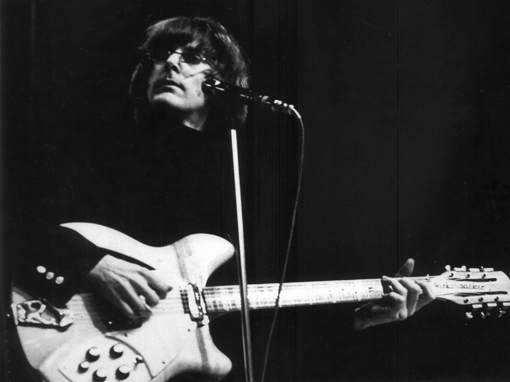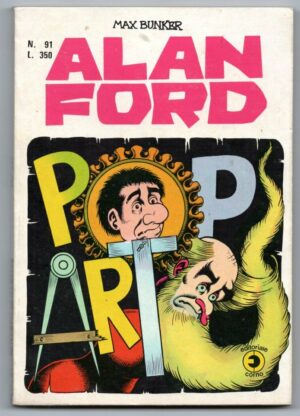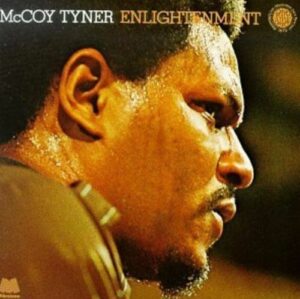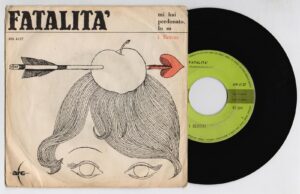Descrizione
PREMESSA: LA SUPERIORITA’ DELLA MUSICA SU VINILE E’ ANCOR OGGI SANCITA, NOTORIA ED EVIDENTE. NON TANTO DA UN PUNTO DI VISTA DI RESA, QUALITA’ E PULIZIA DEL SUONO, TANTOMENO DA QUELLO DEL RIMPIANTO RETROSPETTIVO E NOSTALGICO , MA SOPRATTUTTO DA QUELLO PIU’ PALPABILE ED INOPPUGNABILE DELL’ ESSENZA, DELL’ ANIMA E DELLA SUBLIMAZIONE CREATIVA. IL DISCO IN VINILE HA PULSAZIONE ARTISTICA, PASSIONE ARMONICA E SPLENDORE GRAFICO , E’ PIACEVOLE DA OSSERVARE E DA TENERE IN MANO, RISPLENDE, PROFUMA E VIBRA DI VITA, DI EMOZIONE E DI SENSIBILITA’. E’ TUTTO QUELLO CHE NON E’ E NON POTRA’ MAI ESSERE IL CD, CHE AL CONTRARIO E’ SOLO UN OGGETTO MERAMENTE COMMERCIALE, POVERO, ARIDO, CINICO, STERILE ED ORWELLIANO, UNA DEGENERAZIONE INDUSTRIALE SCHIZOFRENICA E NECROFILA, LA DESOLANTE SOLUZIONE FINALE DELL’ AVIDITA’ DEL MERCATO E DELL’ ARROGANZA DEI DISCOGRAFICI .
ROGER McGUINN
peace on you
Disco LP 33 giri , 1974, CBS , S 80171 , UK, first pressing
ECCELLENTI CONDIZIONI, vinyl ex++/NM , cover ex++

Roger Mc Guinn (Chicago, 13 luglio 1942) è un musicista statunitense. Fu il fondatore del gruppo musicale The Byrds nella prima metà degli anni sessanta, gruppo che comprendeva anche personaggi del calibro di David Crosby e Gene Clark. La sua tipica voce nasale, assieme al particolare sound della sua chitarra Rickenbacker
modificata personalmente, caratterizza i primi album del gruppo,
scioltosi nei primi anni settanta dopo aver contribuito alla crescita
del folk rock americano e aver introdotto il rock psichedelico con
brani di notevole successo, tra i quali si segnalano “Turn, Turn, Turn”
e “Eight Miles High”. Mc Guinn ha proseguito la sua carriera fino ai
giorni nostri, con alterni risultati e successi.

- Interprete: Roger McGuinn
- Etichetta: CBS
- Catalogo: S 80171
- Data di pubblicazione: 1974
- Matrici : CBS-S-80171-A1 AL / CBS-S-80171-B1 AL
- Supporto:vinile 33 giri
- Tipo audio: Stereo
- Dimensioni: 30 cm.
- Facciate: 2
- orange label, white paper inner sleeve
Peace on You was Roger McGuinn‘s second full-length solo album, released in 1974.
Track listingAll tracks composed by Roger McGuinn and Jacques Levy except where otherwise noted. Side one
Side two
|
Personnel / The Band

Roger McGuinn – vocals, guitar, bass
- Dan Fogelberg – guitar, vocals
- Al Kooper – guitar, piano, clavinet, arrangements, conductor
- Jorge Calderón – vocals
- Brian Russell – vocals
- Tim Coulter – vocals
- Donnie Dacus – guitar, vocals
- Brenda Gordon – vocals
- Paul “Harry” Harris – keyboards
- Brooks Hunnicutt – vocals
- Howard Kaylan – vocals
- Russ Kunkel – drums, percussion
- Al Perkins – steel guitar
- Leland Sklar – bass
- Paul Stallworth – vocals
- Tommy Tedesco – flamenco guitar
- Mark Volman – vocals
- William McLeish Smith – vocals
- Gwendolyn Edwards – vocals
- Lee Kiefer – arranger & conductor
The solo career of this great rock artist took a while to gather some steam; his 1976 album, Cardiff Rose,
showed that with at least some consistent production and a tight
backing ensemble, he could put across a powerful musical vision without
having to rely totally on re-creating the sound of the Byrds.
For this 1974 album many different influences
come into his musical world, like strange cooks passing through a
kitchen and dropping odd things into the stew. There is heavy
collaborating with songwriter Jacques Levy, who like McGuinn was part of Bob Dylan‘s chaotic music world during this period. While Levy has fans who feel he brought great riches to the kingdoms of artists such as McGuinn, the offerings from the McGuinn and Levy
songwriting team on this album, such as “Together” and “The Lady,” are
packed with corny images and shallow sentiments — in other words, not
exactly what one is used to hearing from McGuinn in his practically
angelic role as a lead vocal spokesman for the Byrds. A bit of Turtles sauce goes in courtesy of vocal contributions from Howard Kaylan and Mark Volman — it doesn’t add much, but at least doesn’t detract, which is more than can be said for the song contributions of session pro Al Kooper or the wimpy Dan Fogelberg. The title of the former artist’s tune is a gift to critics and the public alike: “(Please Not) One More Time.” One Donnie Dacus offers another pair of nothing songs, while the album’s title number, courtesy of country singer Charlie Rich
and hyped to the hilt via the album’s artwork, is also pretty much a
disappointment, a one-idea song that badly muddles the all-important
opening track parade.

James Roger McGuinn (known professionally as Roger McGuinn, previously as Jim McGuinn, and born James Joseph McGuinn III on July 13, 1942) is an American singer-songwriter and guitarist. He is best known for being the lead singer and lead guitarist on many of The Byrds‘ hit records. He is a member of the Rock and Roll Hall of Fame for his work with the Byrds.
Early life
Roger McGuinn was born and raised in Chicago, Illinois. His parents, James and Dorothy, were involved in journalism and public relations, and during his childhood, they had written a bestseller titled Parents Can’t Win. He attended The Latin School of Chicago. He became interested in music after hearing Elvis Presley‘s “Heartbreak Hotel,” and asked his parents to buy him a guitar. In the early 1980s,
he paid tribute to the song that encouraged him to pick up the guitar
that he credited “Heartbreak Hotel” to his autobiographical show.
Around the same time, he was also influenced by country artists and/or
groups such as Johnny Cash, Carl Perkins, Gene Vincent and The Everly Brothers.
In 1957, he enrolled as a student at Chicago’s Old Town School of Folk Music, where he mastered the five-string banjo and continued to hone his guitar skills. After graduation, McGuinn performed solo at various coffeehouses on the folk music circuit where he was discovered and hired as a sideman by folk groups like the Limeliters, the Chad Mitchell Trio, and Judy Collins. He also played guitar and sang backup harmonies for Bobby Darin. Soon after, he moved to the West Coast, winding up in Los Angeles, where he eventually met the future members of The Byrds.
In 1962, after he left the Chad Mitchell Trio, Bobby Darin
hired him to be a backup guitarist and harmony singer. (At that
approximate time, Darin wanted to add some folk roots to his
repertoire, seeing it as a burgeoning musical field.) Unfortunately,
about a year and a half after McGuinn began to play guitar and sing
with Darin, Darin became ill and retired from singing. Subsequently,
Darin opened T.M. Music in New York City‘s Brill Building, hiring McGuinn as a song writer for $35 a week. In 1963, just one year before he co-founded the Byrds, he was a studio musician in New York City, recording with Judy Collins and the Paul Simon-Art Garfunkel duo. At the same time, he was hearing of The Beatles, and wondering how Beatlemania might affect folk music. When Doug Weston gave McGuinn a job in Los Angeles, at the Troubadour,
McGuinn had seasoned his act with Beatles’ songs, and he consequently
turned his attention to another folkie who was also a Beatle fan, Gene Clark, who joined forces with McGuinn in The Byrds, in July of 1964.
The Byrds
During his time with the Byrds, McGuinn developed two innovative and
highly influential styles of electric guitar playing:
“jingle-jangle”–generating ringing arpeggios based on banjo finger picking styles he learned while at the Old Town School–and, secondly, a merging of saxophonist John Coltrane‘s free-jazz atonalities which hinted at the droning of the sitar, a style of playing first heard on the Byrds’ 1966 single “Eight Miles High.”
While tracking the Byrds’ first single, “Mr. Tambourine Man,” at Columbia studios, McGuinn discovered a key ingredient of his signature sound. “The ‘Rick’ (Rickenbacker guitar) by itself is kind of thuddy,” he notes. “It doesn’t ring. But if you add a compressor, you get that long sustain. To be honest, I found this by accident. The engineer,
Ray Gerhardt, would run compressors on everything to protect his
precious equipment from loud rock and roll. He compressed the heck out
of my 12-string, and it sounded so great we decided to use two tube compressors [likely Teletronix LA-2As] in series, and then go directly into the board.
That’s how I got my ‘jingle-jangle’ tone. It’s really squashed down,
but it jumps out from the radio. With compression, I found I could hold
a note for three or four seconds, and sound more like a wind instrument. Later, this led me to emulate John Coltrane’s saxophone on ‘Eight Miles High.’ Without compression, I couldn’t have sustained the riff’s first note.”
“I practiced eight hours a day on that ‘Rick,'” he continues, “I really worked it. In those days, acoustic 12s
had wide necks and thick strings that were spaced pretty far apart, so
they were hard to play. But the Rick’s slim neck and low action let me
explore jazz and blues scales up and down the fretboard, and incorporate more hammer-ons and pull-offs into my solos. I also translated some of my banjo picking techniques to the 12-string. By combining a flat pick with metal finger picks
on my middle and ring fingers, I discovered I could instantly switch
from fast single-note runs to banjo rolls and get the best of both
worlds.”
Another sound that McGuinn developed is made by playing a seven string guitar, featuring a doubled G-string (with the second string tuned an octave higher). The C. F. Martin guitar company has even released a special edition called the HD7 Roger McGuinn Signature Edition,
that claims to capture McGuinn’s signature “jingle-jangle” tone which
he created with 12 string guitars, while maintaining the ease of
playing a 6-string.
The Byrds recorded several albums after Mr. Tambourine Man in 1965. The single Turn! Turn! Turn!
was the Byrds second Number One hit, topping the charts in late 1965.
In 1969, McGuinn’s solo version of Ballad Of Easy Rider appeared on the
film of the same name, while a full band version was the title track
for the album released later that year. 1970’s “Untitled” album
featured a 16-minute version of the Byrds 1966 hit “Eight Miles High”,
with all four members taking extended solos representative of their
‘jam-band’ style of playing during that period.
After several personnel changes, the group disbanded in 1973, with
Chris Hillman playing bass with the band for their final show in
February of that year. Notable band members included David Crosby, Gene
Clark, Chris Hillman, Michael Clarke,Clarence White, Skip Battin and
Gram Parsons, all of whom went on to form successful groups. In 1968, he helped create the groundbreaking Byrds album Sweetheart of the Rodeo, to which many attribute the rise in popularity of country rock.
Post-Byrds
After the break-up of the Byrds, McGuinn released several solo albums throughout the 1970’s. He toured with Bob Dylan during his 1975 and 1976 “Rolling Thunder Revue“In late 1975, he played guitar on the track titled “Ride The Water” on Bo Diddley‘s The 20th Anniversary of Rock ‘n’ Roll all-star album.
In 1978, McGuinn joined fellow ex-Byrds Gene Clark and Chris Hillman to form “McGuinn, Clark and Hillman,” and the band released its debut album with Capitol Records
in 1979. The media loved the band and they performed on many TV rock
shows, including repeated performances on The Midnight Special, where
they played both new material and Byrds hits. “Don’t You Write Her Off”
reached #33 in April 1979. While some feel that the slick production
and disco rhythms didn’t flatter the group, and the album had mixed
reviews both critically and commercially, it sold enough to generate a
follow up. McGuinn, Clark and Hillman’s second release was to have been
a full group effort entitled “City,” but a combination of Clark’s
unreliability and his dissatisfaction with their musical direction
(mostly regarding Ron and Howard Albert’s production) resulted in the
billing change on their next LP “City” to “Roger McGuinn and Chris
Hillman, featuring Gene Clark.” By 1981 Clark had left and the group
briefly continued as “McGuinn/Hillman.”
In 1987 Roger McGuinn was opening act for Dylan and Tom Petty. In 1991 he released his comeback solo album Back from Rio to successful acclaim.
Roger McGuinn has used the World Wide Web to continue the folk tradition since November 1995 by recording a different folk song each month on his Folk Den site. The songs are made available from his web site and a selection (with guest vocalists) was released on CD as Treasures from the Folk Den. In November of 2005, McGuinn released a four-CD box set containing one hundred of his favorite songs from the Folk Den.
On July 11, 2000, McGuinn testified before in a Senate Judiciary Committee hearing on downloading music from the Internet
that artists do not always receive the royalties that (non-Internet
based) record companies state in contracts, and that to date, The Byrds
had not received any royalties for their biggest hits, “Mr. Tambourine
Man” and “Turn, Turn, Turn”—they only received advances, which were
split five ways and amounted to just “a few thousand dollars” per band
member. He also stated that he was receiving 50 percent royalties from MP3.com.
McGuinn currently tours as a solo artist.
Religious faith and name changes
In 1965, McGuinn joined the Subud spiritual association and practiced the latihan,
an exercise in which he opened himself up to receiving spiritual
guidance through the quieting of his mind. McGuinn changed his name in 1967 after Subud‘s founder Bapak told him it would better “vibrate with the universe.” Bapak
sent Jim the letter “R” and asked him to send back ten names starting
with that letter. Owing to a fascination with airplanes, gadgets and science fiction, he sent names like “Rocket,” “Retro,” “Ramjet,” and “Roger,” the latter a term used in signalling protocol over two-way radios, military and civil aviation. Roger was the only “real” name in the bunch and Bapak
picked it. While using the name Roger professionally from that time on,
McGuinn only officially changed his middle name from Joseph to Roger.
In 1977 McGuinn became a born-again Christian.





